Table of Contents
ToggleIn a world where every click counts and apps reign supreme, the demand for skilled software developers is skyrocketing. But what does it really take to join this elite tech tribe? Spoiler alert: it’s not just about knowing how to code like a wizard or mastering the latest programming language.
Imagine diving into a realm where problem-solving is your superpower and teamwork feels like a well-choreographed dance. From understanding user needs to navigating complex algorithms, the requirements for software developers extend far beyond the keyboard. Whether it’s a degree in computer science or a knack for debugging, the path to becoming a coding connoisseur is as varied as the apps on your phone. Buckle up as we explore the essential skills and qualifications that can turn aspiring developers into tech rockstars.
Overview of Software Developer Requirements
Success as a software developer requires a blend of technical skills and personal attributes. Familiarity with programming languages like Java, Python, and JavaScript stands as a fundamental requirement. Developers use these languages to build applications and solve complex problems.
Certification can enhance credibility. Relevant certifications from recognized organizations provide evidence of expertise in specific technologies or methodologies. Knowledge of development frameworks and tools further strengthens a developer’s skill set.
Problem-solving ability plays a critical role in a developer’s effectiveness. Code often encounters bugs or inefficiencies, so quick diagnosis and resolution are essential. Collaboration is equally important; developers frequently work with teams, necessitating strong communication skills and the ability to share ideas clearly.
An understanding of software development methodologies, such as Agile and Scrum, proves beneficial. These methodologies emphasize iterative progress and flexibility, aligning well with dynamic project environments. Experience with version control systems, like Git, also remains a staple in the industry, allowing developers to track changes and collaborate on code more effectively.
Soft skills complement technical know-how. Adaptability fosters a willingness to learn new technologies and techniques. Time management helps to meet deadlines and manage multiple projects simultaneously, a common situation in the field.
Software developer requirements encompass a diverse range of skills, blending technical competence with interpersonal attributes vital for thriving in collaborative environments.
Technical Skills
Technical skills play a critical role for software developers, covering a range of capabilities essential for effective performance.
Programming Languages
Proficiency in programming languages forms the foundation of a software developer’s expertise. Languages such as Java, Python, and JavaScript rank among the most commonly used. Each language serves distinct purposes in development, with Java widely used for Android applications, Python favored for data analysis and scripting, and JavaScript essential for web development. Familiarity with multiple languages allows developers to choose the best one for each project, enhancing flexibility and efficiency.
Frameworks and Tools
Knowledge of frameworks and tools significantly boosts productivity and project quality. Frameworks like React and Angular streamline web development, providing reusable components and reduced coding time. Tools such as Git support version control, enabling easy collaboration among team members. Experience with integrated development environments (IDEs) also enhances coding efficiency, offering features like debugging and syntax highlighting. Mastering these frameworks and tools equips developers to tackle complex tasks effectively.
Soft Skills
Soft skills play a pivotal role in a software developer’s success. Mastering these skills enhances teamwork and helps manage projects effectively.
Communication Skills
Effective communication skills correlate directly with a developer’s ability to share ideas. Developers must convey complex technical concepts to team members and stakeholders clearly. Listening is equally important; understanding feedback ensures better implementation of suggestions. Developers also prepare documentation to facilitate collaboration and maintain clarity throughout the development process. Regular updates and status reports foster transparency and keep everyone aligned on project goals.
Teamwork and Collaboration
Strong teamwork and collaboration skills enhance project success. Developers often participate in cross-functional teams, combining different expertise to achieve objectives more efficiently. Emphasizing open communication encourages sharing ideas and resolving conflicts constructively. Trust between team members builds a supportive environment where individuals contribute their unique strengths. Engaging in pair programming or code reviews promotes knowledge sharing and skill development, making teams more agile and productive. Balancing individual contributions with collaborative efforts is essential to delivering quality software on time.
Education and Experience
Education and experience serve as foundational elements for a software developer’s career progression. They provide essential knowledge and practical skills.
Degree Requirements
A bachelor’s degree in computer science, software engineering, or a related field often holds significant value. Many employers prefer candidates with a formal education that covers critical programming principles and algorithms. Some institutions now offer specialized degrees focused on software development, which equips graduates with relevant skills. Furthermore, obtaining a master’s degree in a relevant discipline can enhance job prospects. Regardless of degree type, practical application of learned skills through projects or internships remains crucial.
Relevant Experience
Relevant experience can take various forms, from internships to personal projects that showcase coding abilities. Many employers value hands-on experience with development tools and methodologies over formal education alone. Open-source contributions and participation in coding boot camps provide excellent opportunities for skill development. Networking through industry events often leads to practical engagements that bolster resumes. It’s essential to demonstrate an ability to solve real-world problems, as experience in collaborative settings highlights adaptability and teamwork.
Industry-Specific Requirements
Software developers must meet specific requirements depending on their area of specialization. This section highlights the key prerequisites for web development and mobile application development.
Web Development
Web developers need proficiency in HTML, CSS, and JavaScript to create responsive websites. Familiarity with frameworks like React, Angular, and Vue.js enhances their capability to build dynamic user interfaces. Knowledge of back-end languages such as Node.js or Python is essential for server-side scripting. Mastery of version control systems like Git is critical for collaboration and maintaining code integrity. Understanding web performance optimization techniques ensures efficient page loading, improving user experience. Additionally, awareness of web security protocols, such as SSL and encryption methods, safeguards sensitive data. Those who focus on full-stack development benefit from skills in both front-end and back-end technologies.
Mobile Application Development
Mobile application developers must know programming languages such as Swift for iOS and Kotlin for Android. Experience with mobile development frameworks like Flutter or React Native provides cross-platform capabilities. Utilizing development tools like Android Studio or Xcode speeds up the app creation process. Understanding user interface (UI) and user experience (UX) design principles is vital for creating intuitive apps. Familiarity with APIs enhances integration capabilities with third-party services. Developers should keep abreast of app store guidelines to ensure smooth submission and compliance. Strong debugging skills are critical for identifying and resolving issues in mobile applications.
The landscape for software developers continues to evolve rapidly. As technology advances the need for a well-rounded skill set becomes increasingly critical. Developers must not only master programming languages and tools but also cultivate soft skills that foster effective collaboration and communication.
Investing in education and practical experience remains vital for aspiring developers. Those who embrace continuous learning and adapt to industry trends will find themselves well-positioned for success. By balancing technical expertise with interpersonal abilities they can navigate the challenges of the tech world and contribute meaningfully to their teams and projects.






